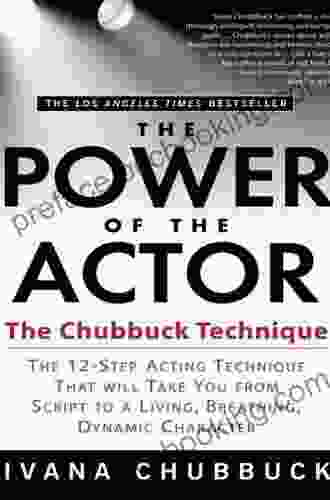Unlock the Foundations of Contract Law: An In-Depth Guide to Elements of Contract Law

In the intricate web of legal obligations, contracts stand as pillars of certainty and enforceable promises. Whether you're a seasoned legal professional, a budding entrepreneur, or simply navigating the complexities of everyday life, understanding the elements of contract law is crucial for safeguarding your rights and avoiding legal pitfalls.
This comprehensive guide delves into the fundamental principles of contract law, equipping you with the knowledge and insights necessary to confidently draft, interpret, and enforce contracts.
4.6 out of 5
| Language | : | English |
| File size | : | 6787 KB |
| Text-to-Speech | : | Enabled |
| Screen Reader | : | Supported |
| Enhanced typesetting | : | Enabled |
| Print length | : | 160 pages |
| Lending | : | Enabled |
Essential Elements of a Valid Contract
At the heart of every contract lies a set of fundamental elements that must be present for it to be legally binding. These elements, known as the "Offer, Acceptance, Consideration, Capacity, Legality, and Mutual Assent," form the foundation of contractual obligations.
1. Offer
An offer is a clear and unambiguous proposal to enter into a contract. It must specify the terms and conditions of the proposed agreement and must be communicated to the other party. An offer can be expressed orally, in writing, or through conduct that demonstrates an intent to be bound.
2. Acceptance
Acceptance occurs when the offeree agrees to the terms of the offer. The acceptance must be unconditional and mirror the terms of the offer. It can be communicated through words, actions, or silence in certain circumstances.
3. Consideration
Consideration is the exchange of value between the parties to a contract. It can be anything of value, such as money, goods, services, or a promise. Consideration must be sufficient, meaning it must have some value in the eyes of the law.
4. Capacity
To enter into a valid contract, the parties must possess the legal capacity to do so. This means they must be of legal age, have sound mind, and not be under any legal disabilities or influences that impair their judgment.
5. Legality
Contracts that violate public policy or are contrary to the law are considered illegal and unenforceable. Examples include contracts for illegal activities or contracts that violate ethical standards.
6. Mutual Assent
Mutual assent occurs when both parties to the contract have a shared understanding of the terms and conditions of the agreement. This requires a true meeting of the minds, where both parties are aware of and agree to the same obligations.
Types of Contracts
Contracts can be classified into various types based on their purpose, form, and subject matter. Common types of contracts include:
- Bilateral Contracts: Include promises exchanged between both parties, creating mutual obligations.- Unilateral Contracts: Involve an offer to perform an act in exchange for payment or other consideration.- Express Contracts: Created through spoken or written words that clearly express the terms of the agreement.- Implied Contracts: Inferred from the conduct or actions of the parties, even if there is no express agreement.- Formal Contracts: Require a specific form or process to be valid, such as notarization or a written agreement.- Informal Contracts: May be created orally or through informal actions, without any specific form requirement.
Performance and Breach of Contracts
Once a contract is formed, the parties are obligated to perform their respective obligations. Failure to perform as agreed constitutes a breach of contract. Breaches can be either material, which substantially impairs the purpose of the contract, or minor, which only partially affects performance.
Remedies for breach of contract vary depending on the circumstances and the type of breach. Common remedies include:
- Compensatory Damages: Awarded to the non-breaching party to compensate for the losses incurred due to the breach.- Specific Performance: Free Downloaded by a court to require the breaching party to fulfill their contractual obligations.- Rescission: Cancels the contract and restores the parties to their pre-contract positions.- Injunction: Prohibits the breaching party from continuing to violate the contract.
Defenses to Breach of Contracts
In certain circumstances, parties to a contract may raise defenses to avoid liability for breach. Common defenses include:
- Impossibility: The performance of the contract becomes impossible due to unforeseen circumstances beyond the control of the breaching party.- Frustration of Purpose: The purpose of the contract is destroyed due to an unforeseen event that makes the contract impractical or impossible to fulfill.- Duress: The contract was entered into under unlawful pressure or coercion.- Undue Influence: The contract was procured through improper pressure or manipulation that takes advantage of a party's vulnerability.- Mistake: The contract was entered into based on a material mistake of fact that the breaching party could not reasonably have avoided.- Statute of Limitations: Legal deadlines for filing a breach of contract lawsuit, which vary depending on the jurisdiction.
Elements of Contract Law is an indispensable resource for anyone seeking a comprehensive understanding of the fundamental principles of contract law. This guide empowers you with the knowledge and insights necessary to navigate the complexities of contractual obligations, protect your rights, and avoid legal pitfalls. Whether you're a seasoned legal professional, a budding entrepreneur, or simply an individual seeking to safeguard your interests, this book is your essential companion.
4.6 out of 5
| Language | : | English |
| File size | : | 6787 KB |
| Text-to-Speech | : | Enabled |
| Screen Reader | : | Supported |
| Enhanced typesetting | : | Enabled |
| Print length | : | 160 pages |
| Lending | : | Enabled |
Do you want to contribute by writing guest posts on this blog?
Please contact us and send us a resume of previous articles that you have written.
 Book
Book Novel
Novel Page
Page Chapter
Chapter Text
Text Story
Story Genre
Genre Reader
Reader Library
Library Paperback
Paperback E-book
E-book Magazine
Magazine Newspaper
Newspaper Paragraph
Paragraph Sentence
Sentence Bookmark
Bookmark Shelf
Shelf Glossary
Glossary Bibliography
Bibliography Foreword
Foreword Preface
Preface Synopsis
Synopsis Annotation
Annotation Footnote
Footnote Manuscript
Manuscript Scroll
Scroll Codex
Codex Tome
Tome Bestseller
Bestseller Classics
Classics Library card
Library card Narrative
Narrative Biography
Biography Autobiography
Autobiography Memoir
Memoir Reference
Reference Encyclopedia
Encyclopedia Lisa Gache
Lisa Gache H Robert Charles
H Robert Charles Lennard Bickel
Lennard Bickel Ian Goldin
Ian Goldin Scott Thybony
Scott Thybony Sammy Franco
Sammy Franco Hanspeter Schmidli
Hanspeter Schmidli Sheila Willcox
Sheila Willcox Jo A Kaucher
Jo A Kaucher Ned Crouch
Ned Crouch Gregory Maguire
Gregory Maguire Tim Glover
Tim Glover Sharon Olds
Sharon Olds Roger Bryan
Roger Bryan Gregory C Rasner
Gregory C Rasner Glen Arnold
Glen Arnold Jerome Maida
Jerome Maida Mark Vella
Mark Vella Kathryn Wolfe
Kathryn Wolfe Hanzala Mojibi
Hanzala Mojibi
Light bulbAdvertise smarter! Our strategic ad space ensures maximum exposure. Reserve your spot today!
 Aldous HuxleyFollow ·6.8k
Aldous HuxleyFollow ·6.8k Jerome BlairFollow ·8.5k
Jerome BlairFollow ·8.5k Glen PowellFollow ·5.1k
Glen PowellFollow ·5.1k Pat MitchellFollow ·14k
Pat MitchellFollow ·14k Ivan CoxFollow ·6.5k
Ivan CoxFollow ·6.5k Ricky BellFollow ·19.6k
Ricky BellFollow ·19.6k Felix CarterFollow ·15.5k
Felix CarterFollow ·15.5k Thomas PowellFollow ·3.7k
Thomas PowellFollow ·3.7k

 Brady Mitchell
Brady MitchellMaster IELTS Speaking: The Ultimate Guide to Success
Kickstart Your IELTS...

 Branden Simmons
Branden SimmonsBack Spin: A Thrilling Myron Bolitar Novel
Get ready to embark on a...

 Marc Foster
Marc FosterData Structures and Algorithms: A Comprehensive Guide to...
In the ever-evolving...

 Jeff Foster
Jeff FosterUnveiling the Basics of Microbiology: A Comprehensive...
The world of...

 J.D. Salinger
J.D. SalingerHold Tight Suspense Thriller: A Gripping Page-Turner That...
Are you ready for a suspense thriller that...
4.6 out of 5
| Language | : | English |
| File size | : | 6787 KB |
| Text-to-Speech | : | Enabled |
| Screen Reader | : | Supported |
| Enhanced typesetting | : | Enabled |
| Print length | : | 160 pages |
| Lending | : | Enabled |














